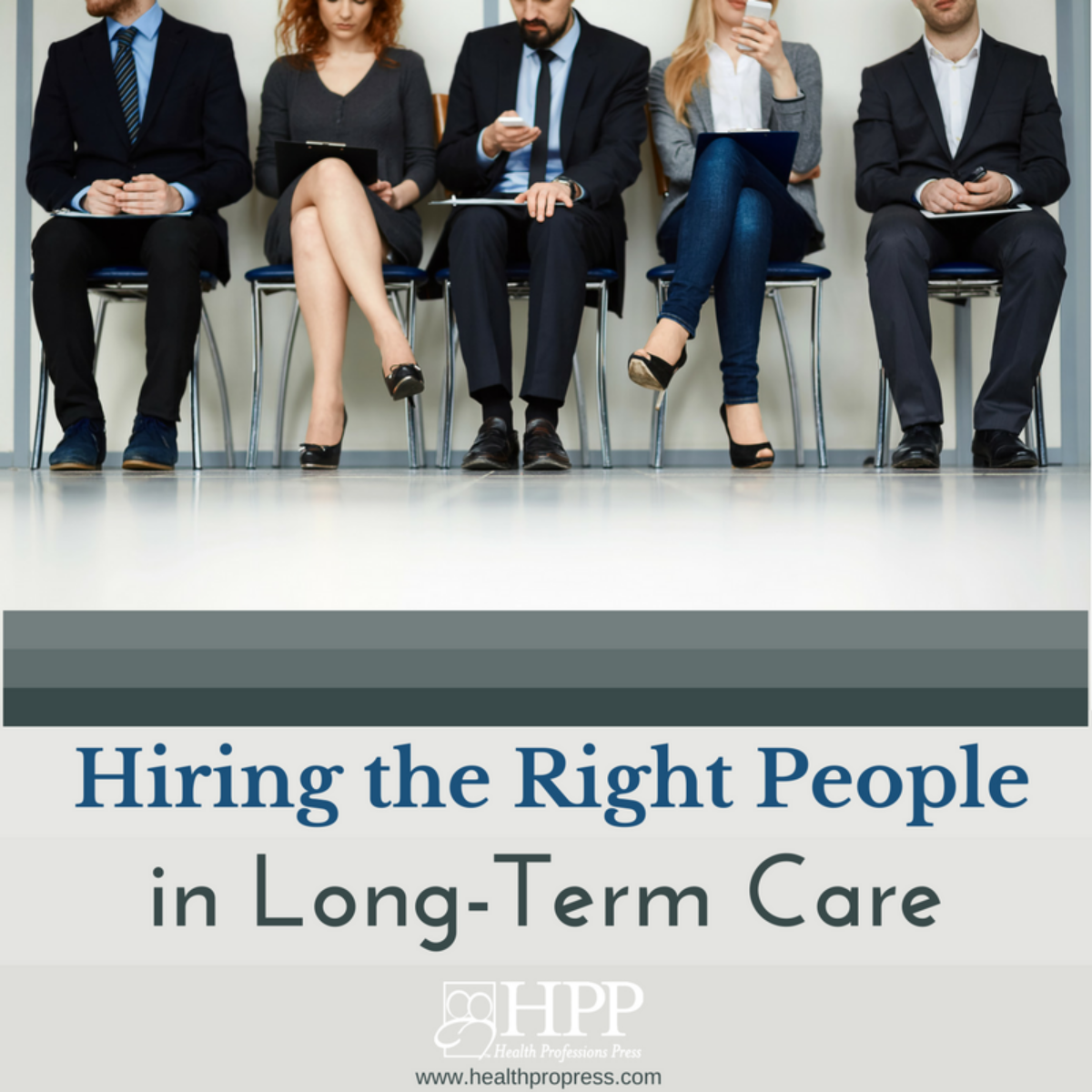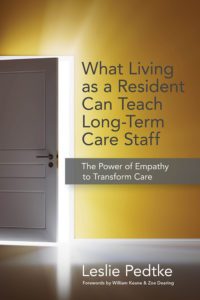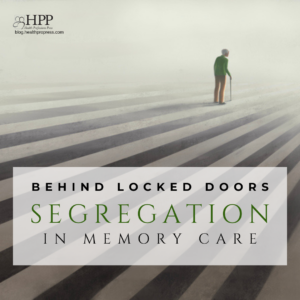
Hiring the Right People in Long-Term Care
Leslie Pedtke (Educator for Quality Improvement, former nursing home Administrator, and author of What Living as a Resident Can Teach Long-Term Care Staff: The Power of Empathy to Transform Care), provides tips on hiring the right people for your organization.
Working in long-term care is not for everyone. I am sure I am not the only person who has experienced the “Oh” reaction when you meet someone for the first time and are asked what you do for a living.
In long-term care, we need people who want to be here, working and caring about what they do and why they do it, as well as building relationships with residents to better understand their needs. If you are just out looking for a job, apply somewhere else.
That is a really hard stance to take when you really need staff. It is tempting to hire the person who did “pretty good” in the interview. You are thinking in the back of your mind how this person could be the answer to the hole you have on the midnight shift. “If I hire her now, she could be oriented and on her own by the weekend.”
Do not do it.
Taking the stance to slow down the hiring process is an aspect of culture change that can create staff longevity in your community. I promise you.
How do you hire the right people?
First and foremost, stop hiring people on the spot.
If you continue to hire the first warm body to walk through the door, you are only going to get a warm body working for you. You are not showing the person the value of your community. You are just showing him or her a place of employment. Because, really, there is a difference between a place of employment and a place where we are part of something bigger. Working in long-term care is not just a job, so stop hiring people looking for jobs.
During the interview, ask the person what made him or her apply to work in your community.
The answers you’re not looking for or are, “Well, my supervisor cut my hours and I need a full-time job.” Or, “You are a 10-minute drive closer to my house.”
The answers you are looking for are what the person knows about your community and why he or she applied to work here. Do they know you have a unique approach to caring for your residents? Do they understand what person-centered care really is?
When interviewing someone, spend a lot of time talking about your community.
I always share that we are a person-first community and that if he or she works best with routine and in a task-oriented environment, then a position with us may not be suitable. The residents’ needs come first. A scenario I often share is that when a person living in our community wants to go for a walk, we go along for the walk. If a resident wants to sit on the front patio, we join him or her. Most of the time the response I get is, “I can sit outside with the resident? I’m allowed to do that?”
“Not only are you allowed,” I reply, “it’s expected.
Tell the person about the progress your community has made in adopting a person-centered care approach and the goals for continuing to build on those successes.
Make sure he or she knows your values and mission. Spend time introducing him or her to people who live and work in the community.
Talk to the person about how your community is person first with employees and give examples of what it means.
It is expected that everyone pitch in when a co-worker needs help. His or her job becomes your job because we are all working in the same community for the same reasons.
Watch the interviewee’s body language, but also pay attention to yours.
If you are not excited and engaged in telling the person about the adventure he or she is about to embark on, then he or she probably is not going to be excited or engaged either.
I think of our hiring process like this: It is like getting something for free versus pay for it. You tend to value more the things you had to save for and earn versus things that were just given to you. Do not give away jobs for free. Make potential new hires earn a chance to be a part of your community.
This post was adapted from What Living as a Resident Can Teach Long-Term Care Staff: The Power of Empathy to Transform Care, by Leslie Pedtke, L.N.H.A., © October 2017 by Health Professions Press, Inc.
Read the book!
 What Living as a Resident Can Teach Long-Term Care Staff
What Living as a Resident Can Teach Long-Term Care Staff
The Power of Empathy to Transform Care
By Leslie Pedtke, L.N.H.A.
© October 2017 by Health Professions Press, Inc.
In this book, learn about the innovative Through the Looking Glass program, that puts staff in the shoes of the resident. Staff experience first-hand the challenges residents face by simulating a diagnosis and living alongside residents. The lessons learned create more empathetic and compassionate caregivers, improve care practices, and enhance well-being for both staff and residents. Learn how to set up this program in your organization and how it will help you eliminate personal body alarms, decrease falls, reduce use of psychotropic medications, increase staff retention and satisfaction, and be a more proactive community.





Add comment